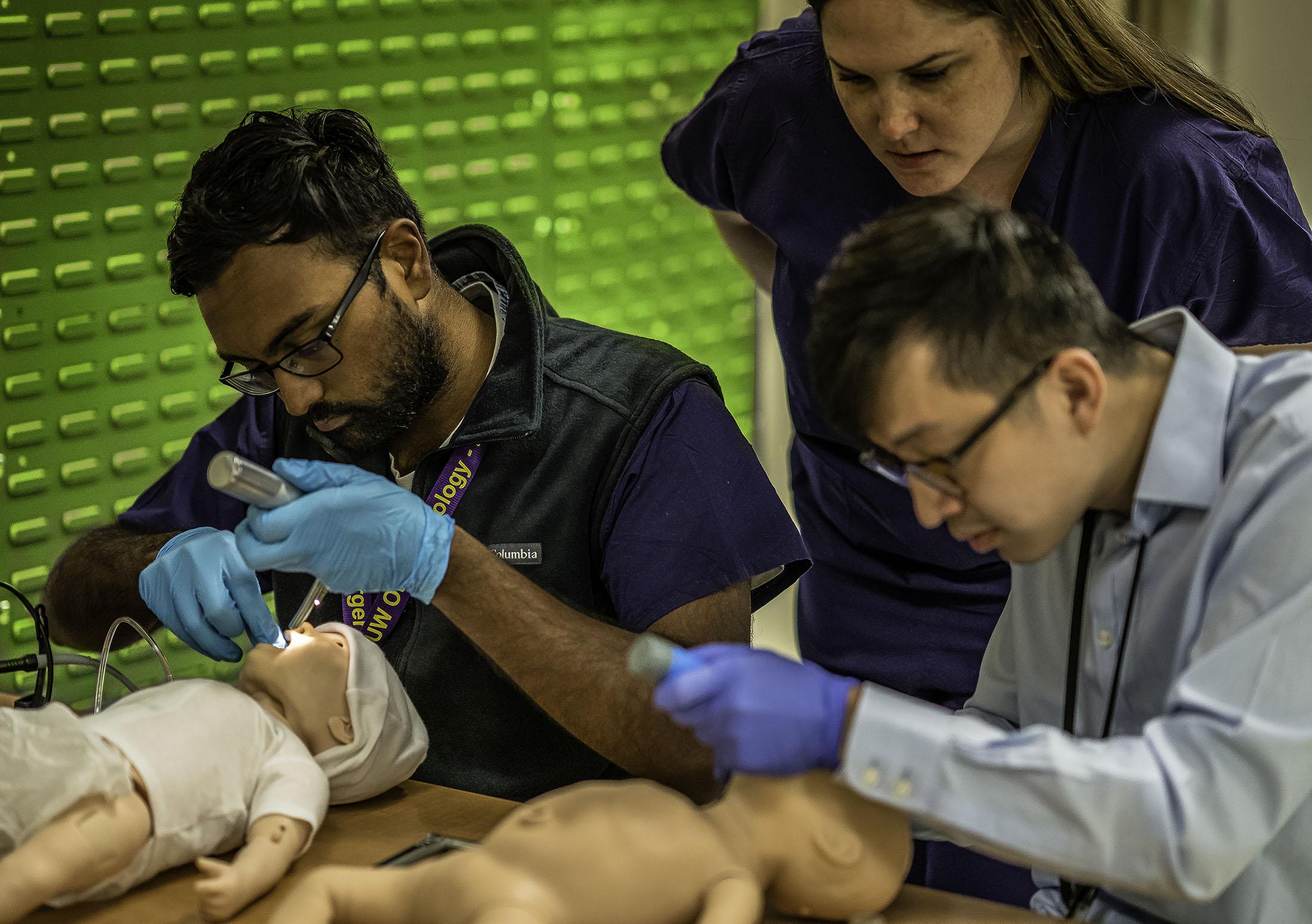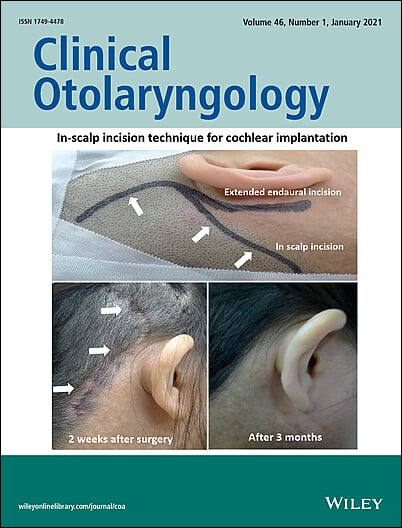ENT Surgical Care Explained: When Is It Necessary?
ENT Surgical Care Explained: When Is It Necessary?
Blog Article
Exploring the Area of Otolaryngology: What to Expect When You Consult an ENT
Otolaryngology, frequently described as ENT, incorporates the diagnosis and therapy of nose, ear, and throat problems. For those experiencing related concerns, getting in touch with an ENT professional can provide clarity and relief. Understanding what to expect during such examinations is necessary for effective communication and treatment. This summary will outline crucial aspects of the ENT experience, including typical factors for gos to and the procedures associated with diagnosis and therapy.

Recognizing Otolaryngology: A Review
Otolaryngology, frequently referred to as ENT (Throat, nose, and ear) medicine, is a customized branch of medication that concentrates on the medical diagnosis and therapy of problems influencing these vital areas of the human body. This field includes a wide variety of disorders, consisting of those relevant to hearing, equilibrium, breathing function, and speech. Otolaryngologists are educated to manage both medical and medical therapies, utilizing innovative techniques and technologies. Their competence expands past typical conditions, addressing concerns such as allergic reactions, sinus infections, and hearing loss. Furthermore, they play an important duty in the management of head and neck cancers, offering detailed care tailored to individual client demands. Overall, otolaryngology continues to be important for preserving health and lifestyle in affected individuals.
Common Reasons to See an ENT Professional
Lots of people look for the experience of an ENT professional for a variety of reasons, reflecting the diverse nature of problems that influence the nose, ear, and throat. Typical concerns include persistent sinusitis, which frequently results in relentless nasal congestion and facial pain. Allergies and their associated signs and symptoms, such as itching and sneezing, also trigger visits to these specialists (Hearing). Hearing loss, whether progressive or sudden, is one more considerable reason for appointment. Furthermore, individuals might seek examination for throat disorders, including relentless hoarseness or swallowing troubles. Sleep apnea, identified by interrupted breathing during rest, is often attended to by ENT specialists as well. Each of these conditions highlights the relevance of specialized care in handling intricate ENT-related wellness problems
Preparing for Your ENT Appointment
When getting ready for an ENT appointment, it is vital to gather pertinent info and think about any certain problems. People must compile an in-depth case history, including previous ear, nose, or throat issues, surgical treatments, and present drugs. Documenting signs-- such as regularity, seriousness, and duration-- can provide important understandings for the ENT specialist. Additionally, individuals need to prepare a list of questions they desire to ask, making sure that all concerns are dealt with throughout the see. Bringing along any kind of relevant medical records or test results can even more aid the ENT in comprehending the person's problem. Lastly, people ought to validate their appointment details, including day, location, and time, to decrease any type of last-minute confusion. Proper preparation can boost the performance of the appointment and bring about far better outcomes.
What to Anticipate During the Appointment
As the examination starts, the patient can expect to take part in an extensive discussion with the ENT specialist about their symptoms and clinical history. The professional will certainly ask about the duration, regularity, and severity of signs and symptoms such as hearing loss, nasal congestion, or aching throat. In addition, the individual's previous medical conditions, drugs, and any kind of appropriate household history will certainly be reviewed, helping the professional in creating a complete understanding of the patient's health. The ENT may additionally inquire about way of life elements, such as direct exposure to irritants or irritants. This open discussion develops a structure for the assessment, making certain that the patient's issues are resolved and setting the stage for any essential assessments or suggestions for treatment.
Diagnostic Examinations and Treatments in Otolaryngology
A variety of analysis tests and procedures are important in otolaryngology to precisely assess and detect problems affecting the nose, ear, and throat. Typical tests consist of audiometry, which determines hearing informative post feature, and tympanometry, analyzing middle ear pressure. Nasal endoscopy permits visualization of the nasal passages and sinuses, while laryngoscopy analyzes the throat and singing cords. Imaging methods, such as CT scans and MRIs, supply detailed views of head and neck structures. Allergic reaction screening might additionally be performed to determine triggers for sinus or respiratory issues. These diagnostic devices allow ENT experts to establish an extensive understanding of individuals' conditions, making sure tailored and reliable monitoring strategies. Appropriate diagnosis is essential for successful treatment results in otolaryngology.
Treatment Options Supplied by ENT Specialists
ENT professionals use a variety of treatment options tailored to attend to details problems influencing the ear, nose, and throat. These treatments vary from conservative methods, such as drug and way of life adjustments, to more invasive treatments. Allergic reactions may be managed with antihistamines or immunotherapy, while chronic sinusitis could need nasal corticosteroids or sinus surgical treatment. For hearing loss, ENT professionals usually recommend listening device or surgical treatments like cochlear implants. In instances of throat problems, choices can include speech therapy or operations to eliminate obstructions. Furthermore, they might offer assistance for taking care of sleep apnea, consisting of making use of CPAP devices or surgical interventions. On the whole, the goal is to boost clients' lifestyle with personalized care and reliable therapy approaches.
When to Seek Follow-Up Treatment With an ENT
Recognizing when to seek follow-up care with an ENT professional is important for taking care of ongoing signs or problems connected to throat, nose, and ear problems. Clients need to take into consideration setting up a follow-up appointment if signs linger in spite of initial therapy, such as persistent ear discomfort, nasal congestion, or throat pain. Adjustments in hearing, equilibrium concerns, or uncommon nasal discharge may also warrant additional examination. In addition, if a client experiences adverse effects from suggested medications or has gone through an operation, follow-up treatment is vital to monitor healing and address any type of worries. Timely assessments can assure efficient monitoring of problems, stop possible issues, and give comfort pertaining to one's health. Seeking follow-up treatment advertises positive wellness administration in otolaryngology.
Often Asked Inquiries

What Qualifications Should I Look for in an ENT Expert?
When seeking an ENT expert, one must try to find board certification, relevant experience, and solid patient evaluations. Furthermore, effective interaction abilities and a compassionate strategy can greatly jonathan wu ent improve the overall treatment experience.
Just how Do I Select the Right ENT for My Demands?
Picking the ideal ENT specialist entails assessing their certifications, experience, and person testimonials (ENT surgery). It is essential to consider their communication design and approach to therapy, ensuring they straighten with the individual's details wellness demands and preferences
Are There Any Type Of Threats Connected With ENT Procedures?
The dangers related to ENT treatments might include infection, bleeding, anesthesia problems, and possible damage to surrounding structures. Patients should talk about these risks with their physician to recognize specific problems and guarantee informed decisions.
Just How Can I Manage Stress And Anxiety Prior To My ENT Appointment?
To handle anxiousness prior to a consultation, individuals can exercise deep breathing exercises, imagine favorable results, prepare questions in breakthrough, and seek assistance from good friends or family, cultivating a sense of reassurance and peace.
What Should I Do if I Experience Side Effects From Therapy?
If adverse effects from therapy occur, the person ought to promptly report them to their doctor. Adjustments to treatment or additional interventions may be necessary to assure security and efficiency in managing their condition - ENT Clinic. As the assessment begins, the individual can expect to involve in an extensive discussion with the ENT expert about their signs and medical history. These diagnostic tools enable ENT professionals to nasal drip cough create an extensive understanding of patients' conditions, making certain tailored and effective monitoring strategies. ENT professionals supply a variety of therapy choices tailored to resolve details problems impacting the nose, throat, and ear. When seeking an ENT specialist, one ought to look for board certification, appropriate experience, and strong individual testimonials. Selecting the ideal ENT professional involves examining their qualifications, experience, and person reviews
Report this page